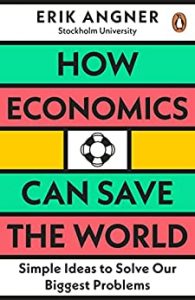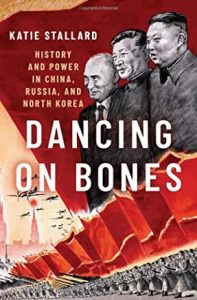Erik Angner’s new book out this month (Jan 2023) is called How Economics Can Save The World: SImple Ideas to Solve Our Biggest Problems. Economists as superheroes – lovely image, especially given the often-negative press we get. The book is a very nice example of the genre of applying economic concepts and research to practical questions, distinguished from others (including my own offerings) by its author’s expertise in behavioural economics. Many people will know his outstanding textbook A Course In Behavioural Economics.
After an introductory chapter about the character of economics and why it doesn’t deserve its bad press – including why the term ‘dismal science’ is a badge of honour. For those who don’t know the story, Thomas Carlyle coined the phrase because economists of the day were prominent anti-slavery campaigners, whereas he was very pro-slavery. The moral compass of the economists was underpinned by the subject’s ‘analytical egalitarianism’: all utility functions are equal.
The chapters cover subjects ranging from the elimination of poverty and tackling climate change to using empirical evidence to improve your parenting (“the fact that an activity has traditionally been considered women’s work does not make it any less economic”), practical tips for changing socially obnoxious behaviours or norms, how to avoid the pitfall of overconfidence (“Overconfidence is resistance to information”), and how to get rich with sensible saving and investment tips. For example, to establish a new social norm there are four principles of change: the new norm has to be common knowledge, so communication is essential; people need a reason to change – is the new behaviour good for them?; people need to know they are not being morally judged or punished for switching; and trendsetters or first movers are needed.
I was particularly pleased to see there is a chapter on the work of Elinor Ostrom, ‘How to Build Community’. Mainstream economics still pays too little attention to her insights about the collective organisation of resource use and allocation. (She features in my book Markets, State and People.) I also particularly appreciate the way the book underlines the fact that economics is not and cannot be value-free yet nevertheless provides tools for using evidence to support or challenge decisions and actions.
How Economics Can Save the World is a very nicely written book, managing to incorporate a huge amount of economic research, and with a wide range of examples. As well as being of interest to the general reader, it would make a good, motivating companion to a behavioural economics course.


